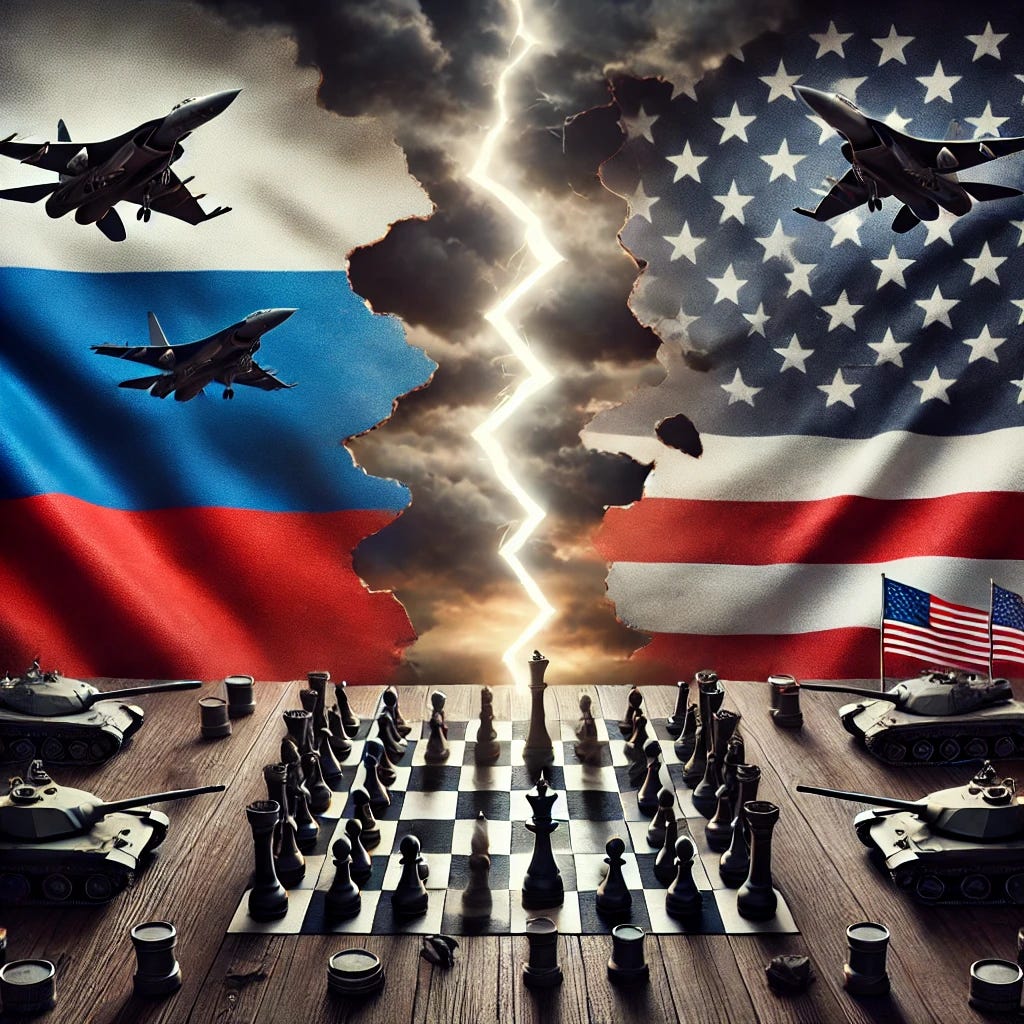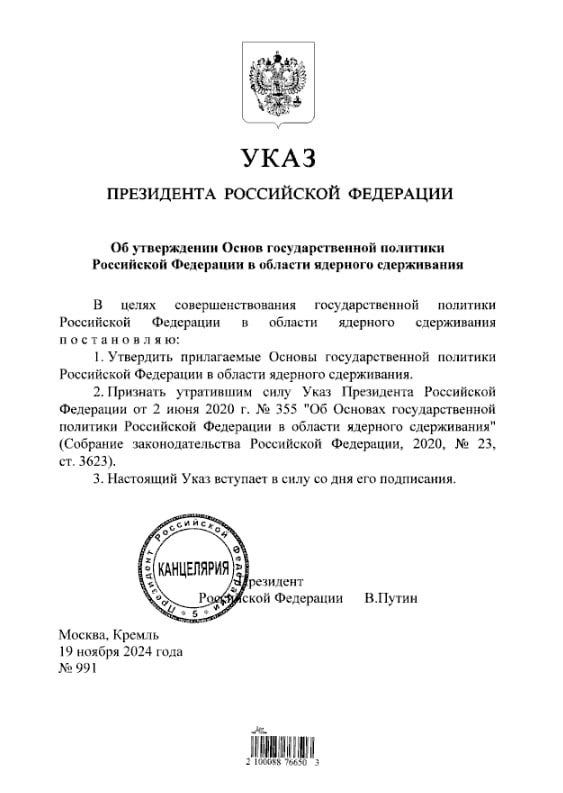Nuclear World War III Looming? Russia's New Nuclear Doctrine: A Response to Escalating Threats
In a significant development, Russian President Vladimir Putin has approved an updated nuclear doctrine, highlighting a shift in Russia's strategic posture amid heightened tensions with the West. This announcement comes on the heels of U.S. President Joe Biden’s decision to allow Ukraine the use of long-range weapons capable of striking "deep into Russia," a move Moscow perceives as a direct and provocative threat to its national security.
Key Provisions of the New Doctrine
The revised nuclear doctrine outlines the conditions under which Russia may deploy its nuclear arsenal, reaffirming its defensive nature while emphasizing its role as a deterrent. The key points include:
Nuclear Retaliation Against Aggression: Aggression against Russia by any member of a military bloc, such as NATO, will be treated as an act of aggression by the entire bloc. This underscores Russia's interpretation of collective defense mechanisms as direct threats.
Use of Nuclear Weapons: Russia reserves the right to use nuclear weapons in response to the use of weapons of mass destruction (WMDs) against itself or its allies, or in the event of a critical threat to its sovereignty and territorial integrity, including that of Belarus.
Presidential Authority: The final decision to employ nuclear weapons rests solely with the President of the Russian Federation, emphasizing centralized control over the country's strategic arsenal.
Conditions for Use: Launches of ballistic missiles targeting Russian territory, or the provision of territory and resources for aggression against Russia, are listed as conditions that could trigger nuclear deterrence.
The doctrine explicitly identifies nuclear weapons as a last resort, employed only in extreme situations. However, the inclusion of Belarus in Russia's nuclear umbrella and the specific mention of NATO-aligned threats signal a growing focus on the alliance’s role in the conflict.
Medvedev’s Warning: The Road to Escalation
Former Russian President Dmitry Medvedev issued a stark warning regarding the consequences of Biden’s decision to provide Ukraine with long-range missiles. In a post on Telegram, Medvedev highlighted the potential for these actions to escalate into a broader conflict:
"The use of Alliance missiles in this way can now be qualified as an attack by the bloc countries on Russia. In this case, the right arises to launch a retaliatory strike with weapons of mass destruction on Kiev and the main NATO facilities, wherever they are. And this is already WWIII."
Medvedev criticized the Biden administration’s "deliberate escalation" of the conflict, suggesting that such decisions could leave a global crisis for the next U.S. administration to manage. He implied that these actions risk triggering a retaliatory strike, bringing the world closer to the brink of nuclear war.
Russia’s Cornered Stance
Biden’s approval of long-range missile use by Ukraine has intensified Moscow’s sense of encirclement. Despite claims that these weapons would have limited military impact, Russia perceives their deployment as a significant escalation with profound strategic implications. Medvedev’s statement captures the prevailing sentiment in Moscow: that the United States and its allies are pushing Russia into a defensive but increasingly reactive posture.
The updated doctrine is both a response to perceived aggression and a warning. By explicitly stating that long-range missile strikes could qualify as an attack justifying nuclear retaliation, Russia is signaling its readiness to escalate if its red lines are crossed.
A New Stage of the Conflict?
This new nuclear policy marks a dangerous escalation in the Ukraine conflict, raising the stakes for all involved parties. It reflects Russia’s effort to solidify its deterrent stance while responding to NATO’s perceived encroachments. Biden’s decision, framed as a show of support for Ukraine, is seen in Moscow as a direct challenge to Russia’s sovereignty and security.
The specter of World War III looms larger as the world faces an increasingly volatile geopolitical landscape. Whether through diplomacy or deterrence, the coming weeks will reveal whether cooler heads prevail or if the path to escalation continues unabated. Medvedev’s somber conclusion encapsulates the stakes: "Maybe old man Biden really did decide to leave this life gracefully, taking a significant part of humanity with him."






Thanks for your great work Patrick!
We've shared the link on our daily report.
A Skeptic War Reports
https://askeptic.substack.com/
A question:
Hi Patrick, soldiers on front - how/were they sleep and how they keep warm now in winter, rain and snow?
Just curious - Kiev temperatures are already below freezing, for example.
Many thanks in advance.